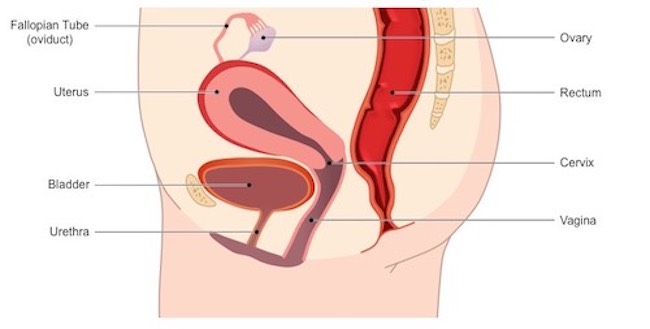There’s a special type of excitement surrounding a pregnancy announcement. Congratulations, gifts, and celebrations are in order. From “we’re pregnant” and “we’re expecting” to elaborate announcements that a baby is on the way, there are countless ways that people have decided to share the news. The very first pregnancy announcement I heard was something along the lines of “mommy has a baby in her stomach.”
I didn’t quite know what to make of this information, beyond the fact that I was learning about reproduction for the first time. I had just learned about our vital organs in elementary school and this stomach thing just didn’t sit right with me. Maybe this was an omen that I would one day pursue anatomy. While other students were busy colouring organs with different shades of red and pink, I was busy wondering how a baby could survive in the same environment as lunch.
While the stomach is often used as a colloquial term for the abdomen, the phrase is anatomically incorrect. Nevertheless, it comes up in the media and in everyday life, usually to explain to a first child that another life is on the way. Don’t get me wrong — it makes sense that pregnancy is explained in easy-to-understand language for children. “Belly” and “tummy” seem fitting as general terms for the abdomen, but the stomach is a whole separate organ. Found in the upper left quadrant of the abdomen, the stomach is responsible for digestion, churning food pieces through muscle contractions while bathing them in a chemical slurry of digestive enzymes and hydrochloric acid. I sure hope your baby isn’t in your stomach.
During pregnancy, the baby is in the uterus (also called the womb). The uterus is the central pear-shaped organ in the female reproductive system. To paint a map of the abdomen: just below your belly button, the organ closest to the front of your body is the bladder, which holds urine. At the back of the lower abdomen is the rectum, which holds fecal matter. And for those with female reproductive organs, the uterus sits right in the middle. In a healthy pregnancy, an egg is released by the ovaries, travelling along the fallopian tubes until it reaches the uterus, where the egg is housed as it grows into a fetus.

Image Source: https://ib.bioninja.com.au/standard-level/topic-6-human-physiology/66-hormones-homeostasis-and/female-reproductive-system.html
As pregnancy progresses and the fetus grows, the uterus expands with it, pushing organs around the abdominal cavity to make space. The fetus also presses directly on the bladder, which is why mom has to go pee so often. So, there you have it: mommy does not have a baby in her stomach.
Let’s say the baby wasn’t in the uterus for some reason. This is an uncommon complication but not impossible, the term being an “ectopic pregnancy.” In this case, the fetal tissue implants either outside of the uterus or on an abnormal region of the uterus. Review papers cite a few common locations of ectopic pregnancies: 95% of the time in the fallopian tubes, ~4% in the interstitial area (where the fallopian tube meets the uterus), and ~1% in the abdominal cavity. All of these cases are very dangerous but luckily not very common, with an estimated prevalence of 1-2%. The possibility of a pregnancy anywhere near the stomach is very low.
During my search for this potential medical mystery, I found an interesting case report where a woman was unexpectedly impregnated through a stab wound to the stomach. The 15-year-old was engaged in oral sex with her boyfriend when an ex-lover barged into the scene. The three were involved in a knife fight, resulting in the woman’s hospitalization. She arrived with two stab wounds to the abdomen, piercing holes in the stomach. Luckily, this was repaired quickly through surgery, and she was shortly discharged. Not the best way to win a woman back, I must say.
Exactly 278 days later, the woman was readmitted for abdominal pain. To her surprise, she was going into labour! Pregnancy wasn’t even a potential explanation given that she had never had a period nor penetrative intercourse. After an emergency C-section, the doctors began searching for an explanation. It’s suspected that residual sperm on the knife with which she was stabbed was able to travel from her stomach, along her GI tract to reach her reproductive organs. While her pregnancy wasn’t ectopic, this is probably the closest case to “mommy having a baby in her stomach.”







